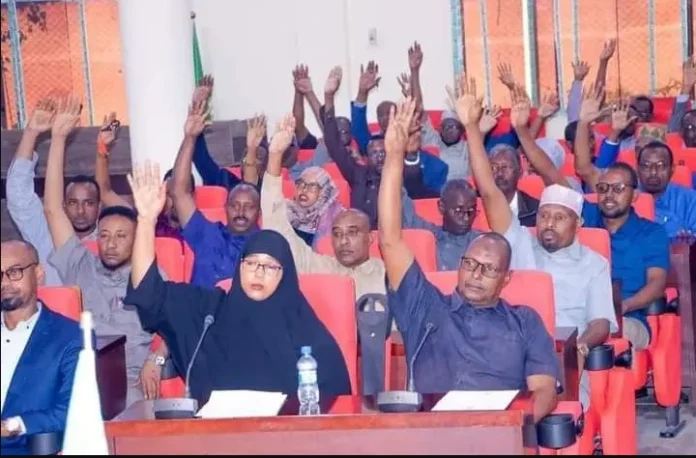Thursday 21,Nov 2024 {HMC} Jubaland’s parliament is electing its new leadership on Thursday to select a parliamentary speaker and two deputy speakers. Candidates are presenting their platforms, followed by voting and the swearing-in of the winners. The election marks a critical step ahead of Jubaland’s presidential vote scheduled for November 25, as the region moves forward with its electoral calendar despite federal objections.
Jubaland’s Boundary and Electoral Commission Chairperson, Dr. Mursal Siyad Mohamed, confirmed that preparations remain on track. “These elections are essential for maintaining stability and continuity in Jubaland’s governance,” he said, dismissing federal criticisms as politically motivated.
Mogadishu has strongly opposed Jubaland’s decision to conduct independent elections, emphasizing the need for a unified national electoral process managed by a centralized commission. The federal government insists that a one-person, one-vote system is vital for fostering accountability and national cohesion.
Somalia’s international partners have also raised alarms over the escalating tensions between the Federal Government of Somalia (FGS) and Jubaland State, calling for urgent de-escalation and a return to constructive dialogue.
However, Jubaland President Ahmed Mohamed Islam, widely known as Ahmed Madobe, maintains that the federal government is overreaching. Earlier this year, he appointed an independent electoral commission, which Mogadishu condemned as unconstitutional, citing Madobe’s expired mandate. Jubaland, in turn, severed ties with the federal government, accusing it of undermining regional autonomy and failing to support crucial security operations.
Political analysts argue that the electoral dispute highlights deeper tensions over power-sharing between Somalia’s federal government and its member states. “This is not just about elections,” said political analyst Mohamed Mukhtar. “It’s about defining the boundaries of federal and regional authority, an issue that has long plagued Somalia’s governance.”
Jubaland leaders have repeatedly dismissed the feasibility of a one-person, one-vote system, citing ongoing security challenges. President Madobe has also rejected term extensions for regional leaders, accusing Mogadishu of using electoral reforms as a pretext for centralizing power.
The current standoff mirrors past disputes, including Jubaland’s contested 2019 presidential election, which saw Madobe re-elected amid federal government opposition. Mediation efforts by Kenya and other actors have so far yielded little progress.
Observers believe Jubaland’s leadership, under Madobe’s seasoned command, is likely to maintain its autonomy, as it has in previous disputes. “Madobe has consistently navigated federal resistance with strategic finesse,” Mukhtar added.
Source Hiiraan Online



